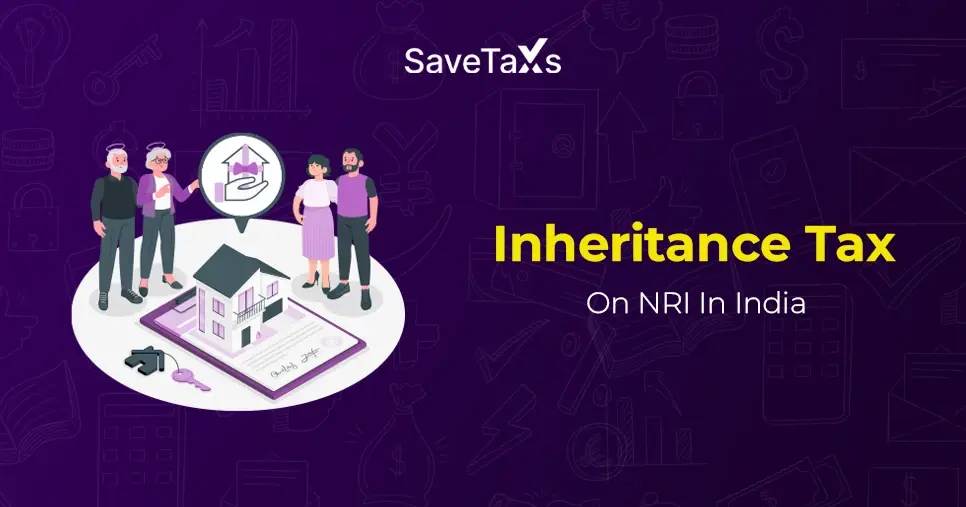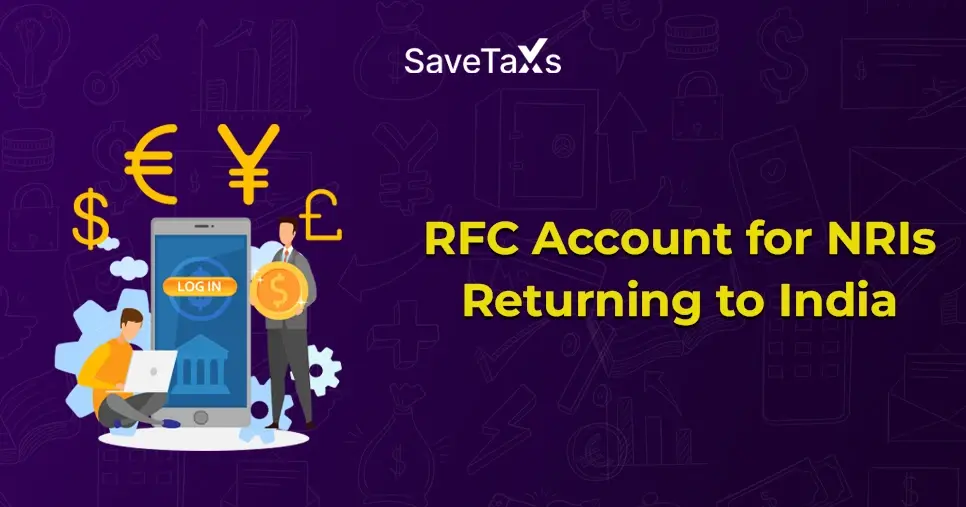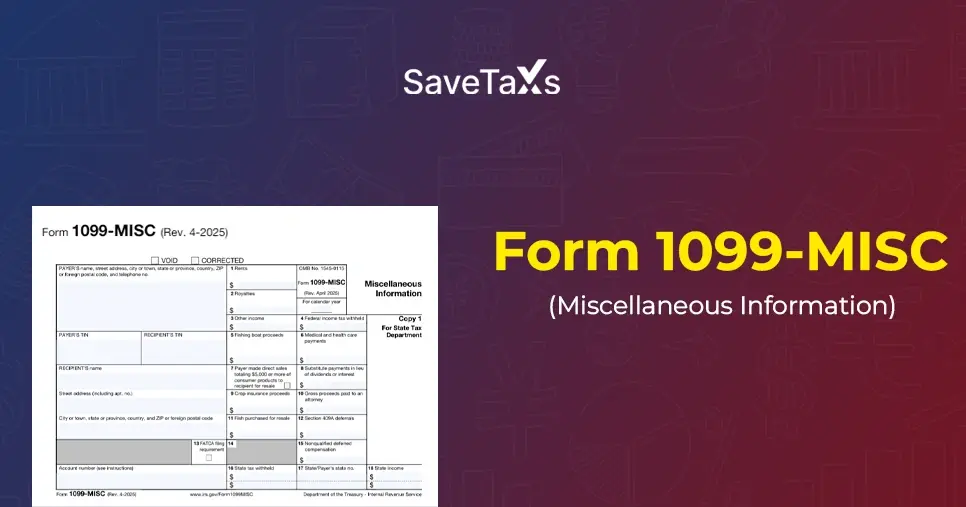- What is Inheritance Tax?
- What is the History of the Inheritance Tax?
- What are the Types of Property NRIs Can Inherit?
- Tax Liability for NRIs on an Inherited Property
- Tax Implications on the Sale of an Inherited Asset By The Taxpayer
- Repatriation Sale Proceeds Rules
- Need Help With NRI Inherited Property Taxation?
Around the world, when inheriting an asset from parents, grandparents, or other heirs, the heir must obtain the inheritance. However, in India, the concept of imposing taxes on inheritance of property does not exist as it was abolished with effect from 1985. But for any income arising in India, the inherited asset is subject to tax.
This blog explains all the tax rules of receiving inheritances in India as a non-resident Indian (NRI).
What is Inheritance Tax?
In the taxation regulatory framework of India, there is no specific levy on inherited assets or non-resident Indians and Indian residents as well. However, from the income generated through inherited assets or the capital gains upon their taxes, various taxes may apply in that case. Still, the act of inheriting an asset in India does not have any tax obligation.
What is the History of the Inheritance Tax?
Inheritance tax, also known as the estate tax, is applied to the transfer of an asset to the heir upon the death of the person. However, such taxes were gradually abolished in 1985. Meaning no tax on inherited property since then, giving a significant advantage to NRIs.
What are the Types of Property NRIs Can Inherit?
Like Indian residents, NRIs have no restrictions on the type of property they can inherit. NRIs can invest in properties for other Indian residents or another NRI in India, be it residential, commercial, agricultural, or a farmhouse in India.
According to the Foreign Exchange Management Act (FEMA), a non-resident Indian (NRI) can inherit an immovable property in India without the permission of the Reserve Bank of India, making the entire process more advantageous for NRIs.
However, the Indian taxation laws differ between the inheritance of immovable property and the inheritance of movable property. Let us understand how:
Immovable Property: Such property that cannot move from one place to another, like land, buildings, and other fixed assets, is called immovable property. An NRI can inherit an immobile property, whether residential or commercial, in India, which can be easily acquired. Another interesting take on this is that NRIs can even inherit a farmhouse and agricultural land in India, which they won't be able to purchase directly due to restrictions set by the government of India.
Note: Though the self-occupied property has no tax implication for heir but only two properties can be claimed as self-acquired in a financial year.
Movable Property: Assets like cash, vehicles, or jewelry are known as movable property. Note that the inheritance of a movable property happens under the principle of succession laws that apply to the deceased's religion. For example, the Hindu Succession Act of 1956 governed the inheritance for Buddhists, Sikhs, Jains, and Hindus.
Tax Liability for NRIs on an Inherited Property
Although there is no tax on inheritance on property, if there is an income generated from that inherited property, like rental income or capital gains, then it shall be subject to tax.
Inheritance Under Foreign Exchange Management Act (FEMA)
For NRIs in India, the FEMA regulates various financial aspects for them, which also include owning a property. Under the FEMA Act, non-resident Indians (NRIs) are permitted to inherit property within the country, which involves both movable and immovable property.
Tax Considerations Upon Disposition
As we know, the act of inheriting a property in India as an NRI requires the buyer to be aware of the potential tax obligations associated with selling the inherited property. The capital gain tax applies based on the difference between the market value of the property while selling and the sale price of the inherited property at the time of inheritance.
Rental Income Income Tax
If NRIs are generating any rental income from the immovable inherited property, they are subject to paying income tax on this income. However, consulting an NRI-specific tax professional can help in stating the exact tax implications based on the circumstances surrounding the inherited property and the resident status.
An Asset Other Than Immovable Property
Receiving any dividend from an inherited mutual fund or shares, such dividend income received is taxable in India.
Earning interest from inherited bonds, debentures, or fixed deposits, then in such a case, the income also becomes taxable.
Such income is subject to tax in India at the standard rate depending on the income slab of the taxpayer, which is further determined by the annual income of a financial year and the tax regime that the taxpayer has opted for.
Can a Non-Resident Indian Sell an Inherited Property?
Yes, be it a resident of Indian or an NRI, they can sell the property. The only exception to keep in mind is that an NRI who holds a plantation land, farmhouse, or agricultural land as an inherited property must sell the property to an Indian resident who is a lawful citizen of India.
Tax Implications on the Sale of an Inherited Asset By The Taxpayer
Below, we will discuss the tax implications in India for NRIs imposed regarding the sale of inherited assets.
Immovable Property
If an individual has been holding a property for more than 24 months, then it is considered a long-term asset. In the case of property inheritance, the holding period of the previous owner's property is also calculated. Consequently, such a sale of property in these two cases will result in a long-term capital gain.
According to section 49(1) of the Income Act 1961, while calculating the capital gains in such cases, the cost that the previous owners of the property have incurred must also be considered. In cases where the property is acquired before April 1, 2001, the property cost must be based on the date of acquisition or the fair market value on April 1, 2001*.
*Section 55 of the IT Act, 1961.
Listed Shares and Securities
In cases where the shares and securities are received from a relative, there is no tax obligation on the date of inheritance. However, if it is obtained from a non-relative, the Fair Market value (FMV) of such shares will be calculated using the deemed tax liability on the date of inheritance.
Selling the shares after holding them for 12 months will be categorize as a long-term capital gain.
If the asset was acquired before April 1, 2001, the cost of the asset will be calculated based on its valuation on the date of acquisition.
According to Section 112A of the Income Tax Act 1961, any such gain that exceeds the threshold of Rs. 1 lakh in any of the categories mentioned above will be subject to tax.
Other Assets (Example: Movable Property, Including Unlisted Shares)
In cases where an asset has been held for more than 36 months, that is, three years, it is considered a long-term asset.
The provision around the sale of other assets remains the same as that of the immovable assets.
Consider Section 49(1) of the Income Tax Act for calculating the capital gains just as written in the immovable property section mentioned above.
Repatriation Sale Proceeds Rules
Repatriating the sale process of an immovable property in India as an NRI involves certain restrictions. A person residing outside India who has acquired an immovable property in India, whether inheritable or acquired during their time as an Indian resident, must obtain prior permission from the Reserve Bank of India (RBI) for the repatriation of sale proceeds.
USD 1 Million Repatriation Limit
Non-resident Indians (NRIs) are allowed to repatriate USD 1 million annually per final year without the proper permission of the RBI, provided certain conditions are met:
- The property was acquired through inheritance from the Indian resident.
- From a person who has retired from employment in India.
- From the spouse of the Indian resident who inherited the property.
Repatriation Above USD 1 Million Limit
If the repartition of sale proceeds from an immovable property exceeds the threshold of UDS 1 million in a financial year, such a case requires prior permission from the RBI.
Conditions for Repatriation
No matter what the amount of the sale proceeds, there are certain conditions for repatriations that the individuals must adhere to, which are as follows.
- The property must be acquired under FEMA provisions.
- The payment for acquiring the property should be made only through the permissible mode of payment.
- An NRI can only repatriate the sale proceeds of a maximum of two properties in case of a residential property.
Note: To repatriate the sale proceeds, an NRI must submit Form 15CA and 15CB. The chartered accountant must sign and submit the Form 15CB.
Need Help With NRI Inherited Property Taxation?
Be it Non-resident Indians (NRIs), PIO (Person of Indian Origin), or the OCI (Overseas Citizenship of India), one can inherit a property or an asset in India under the FEMA regulatory framework and the Income Tax Act 1961. However, the tax treatment on inheritance changes depending on whether the asset is being inherited from a friend or a relative who resides in India or abroad. Though inheriting assets triggers no taxation obligation, any income from inherited asset may incur tax liability.
It is advisable to consult an NRI Tax Expert to understand the tax implications as well as the income tax rates for NRIs on the inherited assets. Savetaxs, a leading NRI taxation firm, has been helping NRIs like you to simplify their tax records and ensure no penalties are incurred. Our experts are available 24/7 across all time zones to help you navigate Indian tax laws smoothly.
Connect with us on a call/text, and we'll take care of the rest.
Note: This guide is for informational purposes only. The views expressed in this guide are personal and do not constitute the views of Savetaxs. Savetaxs or the author will not be responsible for any direct or indirect loss incurred by the reader for taking any decision based on the information or the contents. It is advisable to consult with either a Chartered Accountant (CA) or a professional Company Secretary (CS) from the Savetaxs team, as they are familiar with the current regulations and help you make accurate decisions and maintain accuracy throughout the whole process.
Want to read more? Explore Blogs
Frequently Asked Questions
No matter what your source of income is, we've got you covered. There’s a plan for everybody!



_1767170479.png)
_1767164087.webp)




_1760618042.webp)










